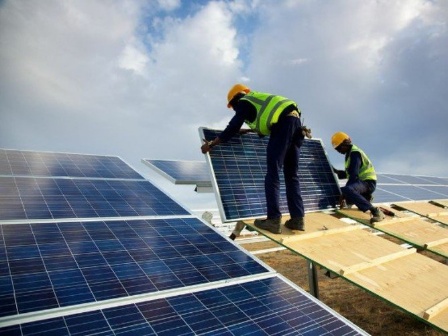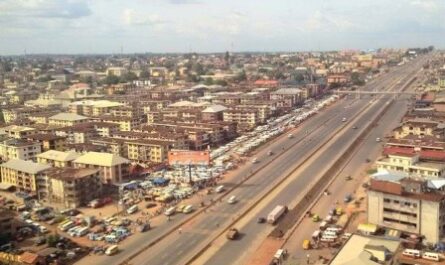Solar energy has become an increasingly popular solution for energy generation worldwide, especially in regions with abundant sunlight, like Nigeria. For Nigerian households and businesses looking to reduce their dependency on the national grid and fossil fuels, solar energy presents a sustainable, reliable, and, over time, cost-effective alternative. However, one primary question persists among prospective adopters: “What is the cost of solar energy installation in Nigeria in 2024?”
In this comprehensive guide, we will break down the key factors influencing the cost of solar energy installation, the average costs for different system sizes, government incentives, financing options, and more to help you make an informed decision.
Table of Contents
- Why Solar Energy in Nigeria?
- Factors Affecting the Cost of Solar Energy Installation
- Average Cost of Solar Installation in Nigeria (2024)
- Types of Solar Systems and Their Costs
- Installation Process and Cost Breakdown
- Government Incentives and Tax Breaks
- Financing Options for Solar Energy in Nigeria
- Long-term Savings and Return on Investment (ROI)
- Key Tips for Choosing the Right Solar Installer
- Final Thoughts
1. Why Solar Energy in Nigeria?
Nigeria’s energy demand far outstrips its current supply, with frequent power outages and inconsistent access to electricity impacting everyday life. Given its geographical advantage, Nigeria receives an average of 4-7 kWh/m² of solar energy per day, making solar energy an ideal alternative. Solar energy systems not only reduce the burden on the national grid but also help cut down energy expenses over time. They offer a clean, renewable energy source that benefits both users and the environment.
2. Factors Affecting the Cost of Solar Energy Installation
The total cost of a solar energy system in Nigeria can vary widely based on multiple factors:
- System Size: Larger systems with higher capacity cost more but provide greater energy output, ideal for businesses or large homes.
- Type of Solar Panels: High-efficiency panels, such as monocrystalline panels, are pricier than polycrystalline panels, but they can generate more power per square meter.
- Inverters and Batteries: An inverter converts DC from solar panels to AC, which is essential for powering most household appliances. Batteries store excess energy for use during nighttime or cloudy days and significantly impact the total cost.
- Installation Complexity: Installation on flat roofs, sloped roofs, or challenging terrains can impact labor costs.
- Brand and Quality: Reliable brands tend to cost more but offer better efficiency, durability, and warranties.
- Location and Transportation Costs: Solar equipment may need to be shipped from international manufacturers, impacting total installation costs, especially in remote areas.
3. Average Cost of Solar Installation in Nigeria (2024)
The cost of solar installations in Nigeria varies based on the system size and type. Here’s an approximate breakdown for common system sizes:
- 1 kW System: ₦600,000 – ₦800,000 (suitable for basic household use)
- 3 kW System: ₦1.5 million – ₦2.2 million (ideal for small homes)
- 5 kW System: ₦2.5 million – ₦3.8 million (sufficient for medium-sized homes)
- 10 kW System: ₦4.5 million – ₦6.5 million (suitable for larger homes and small businesses)
These costs include basic panel, inverter, battery storage, and installation fees, though prices can fluctuate with changes in material costs, currency exchange rates, and market demand.
4. Types of Solar Systems and Their Costs
There are several types of solar systems, each with varying costs and features:
- Grid-Tied Systems: These are connected to the national grid, allowing users to draw power from the grid when solar power is insufficient. They are the most affordable but do not provide power during outages.
- Off-Grid Systems: Ideal for locations without access to the national grid, these systems rely entirely on solar energy and require sufficient battery storage, making them more expensive.
- Hybrid Systems: Combining grid-tied and off-grid capabilities, hybrid systems offer the best of both worlds, but they are the most expensive due to their battery and inverter requirements.
5. Installation Process and Cost Breakdown
Understanding the installation process can help break down the overall costs:
- Site Assessment: Typically costs between ₦20,000 – ₦50,000. It involves assessing your roof, determining energy needs, and calculating optimal panel positioning.
- Solar Panels: Prices vary by brand, with an average cost of ₦200,000 – ₦300,000 per panel.
- Inverter and Battery: Inverter prices range from ₦150,000 for basic models to over ₦800,000 for hybrid inverters. Batteries can cost anywhere from ₦200,000 to over ₦1 million, depending on storage capacity.
- Labor Costs: Vary based on installation complexity, typically from ₦100,000 – ₦500,000.
6. Government Incentives and Tax Breaks
To promote solar energy adoption, the Nigerian government and several local governments have introduced incentives and programs. Key initiatives include:
- Solar Power Naija Program: This government-backed initiative aims to provide affordable solar solutions for up to 5 million homes by offering financing options and discounts.
- Renewable Energy Rebates and Tax Breaks: Certain states offer tax relief on renewable energy equipment, helping to reduce upfront costs.
It’s advisable to consult with local solar providers to know which incentives apply in your area.
7. Financing Options for Solar Energy in Nigeria
High upfront costs can deter many potential buyers. However, financing options are available:
- Bank Loans: Several Nigerian banks now offer loans specifically for solar installations with competitive interest rates.
- Pay-As-You-Go (PAYG) Plans: Many solar companies offer PAYG options, allowing customers to pay a fraction of the system’s cost monthly until fully paid.
- Solar Leases and Power Purchase Agreements (PPA): Some companies lease solar systems to homeowners, who pay a reduced monthly rate without owning the equipment.
8. Long-term Savings and Return on Investment (ROI)
Solar energy systems generally have an ROI period of 5-7 years, depending on usage, system size, and financing options. After this period, users benefit from nearly free energy as solar panels require minimal maintenance. Additionally, battery upgrades and technological advancements continue to make solar energy more efficient, leading to faster savings.
9. Key Tips for Choosing the Right Solar Installer
Selecting the right installer is crucial to maximize your investment. Here’s what to look for:
- Experience and Certifications: Ensure the installer has a solid track record and appropriate certifications.
- Customer Reviews: Read reviews and seek recommendations from previous clients.
- Warranty and Support: Choose providers that offer long warranties (typically 5-25 years for panels) and post-installation support.
- Customization: Each home’s energy needs differ; a good installer should tailor your system based on your household’s specific needs.
10. Final Thoughts
Switching to solar energy in Nigeria is an investment that offers substantial long-term benefits, including energy independence, cost savings, and environmental impact. By understanding the costs, available incentives, financing options, and choosing a reputable installer, Nigerian households and businesses can make informed decisions.
As technology advances and solar energy adoption rises, installation costs may continue to decrease, making solar power even more accessible to Nigerians nationwide.




[url=https://kraken18.eu/]kraken ссылка тор[/url] – кракен даркнет тор, kraken ссылка тор
the original source [url=https://modafinlxl.com]buy pharmacy[/url]
their explanation [url=https://modafinlxl.com]pharma stocks to buy[/url]
her comment is here [url=https://aviatorbetgame.click/]lucky jet[/url]
my explanation [url=https://t.me/USFullz_bot/]buy sin[/url]
[url=https://criptacc.net]cripta cc обменник[/url] – cripta cc, обменник криптовалют
navigate here [url=https://modafinlxl.com/]buy medical supplies canada[/url]
article [url=https://aviatorbetgame.click]aviator bet[/url]
[url=https://kraken18.eu]рабочее зеркало кракен[/url] – kraken зеркало, кракен ссылка зеркало
[url=https://criptacc.net/]крипта сс[/url] – обмен криптовалюты, bestchange обменник
browse this site [url=https://t.me/USFullz_bot]carding ssn dob[/url]
find out [url=https://vvs.exchange]vvs chornos platformAds[/url]
visit the site [url=https://infinityvvallet.io/]orca wallet appAds[/url]
image source [url=https://coinomiwallet.cc]coinomiAds[/url]
wikipedia reference [url=https://cakewallet.cc]how to exchange on cake walletAds[/url]